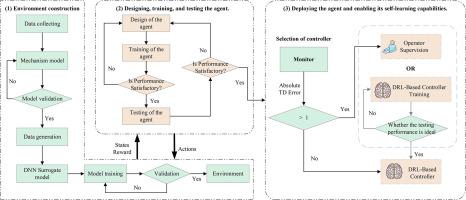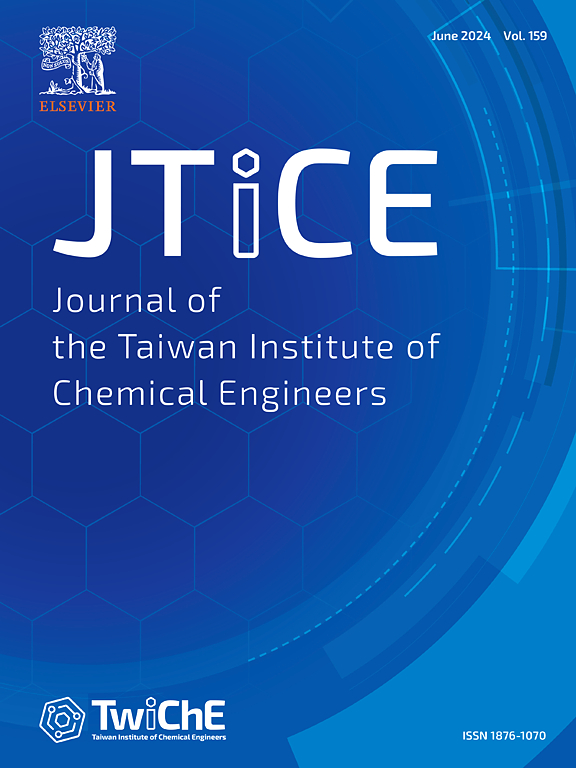Real-time optimization of continuous catalytic reforming using transfer learning and reinforcement learning for feedstock variability
IF 6.3
3区 工程技术
Q1 ENGINEERING, CHEMICAL
Journal of the Taiwan Institute of Chemical Engineers
Pub Date : 2025-09-25
DOI:10.1016/j.jtice.2025.106419
引用次数: 0
Abstract
Background
Real-time optimization (RTO) of continuous catalytic reforming (CCR) is hindered by model mismatch caused by feedstock property variations, which degrade the performance of existing optimization strategies.
Methods
To address this challenge, this study proposes an RTO method integrating transfer learning (TL) and reinforcement learning (RL). A high-precision surrogate model of the CCR process is constructed as the agent's interactive environment. A TD3 agent is designed based on optimization objectives, incorporating dropout layers during training to enhance robustness. The trained critic network serves as a monitor, detecting feedstock changes via absolute temporal difference error.
Findings
TL enables the agent to adapt efficiently to varying feedstock properties. Experimental results demonstrate that the proposed method rapidly identifies optimal operating conditions, with the monitor effectively detecting feedstock changes. Across multiple test cases, the TL strategy reduces average training time to one-tenth of training from scratch, without compromising performance, demonstrating its effectiveness and potential for RTO applications.

利用迁移学习和强化学习对原料可变性进行连续催化重整的实时优化
连续催化重整(CCR)的实时优化(RTO)受到原料性质变化引起的模型不匹配的阻碍,从而降低了现有优化策略的性能。为了解决这一挑战,本研究提出了一种整合迁移学习(TL)和强化学习(RL)的RTO方法。构建了CCR过程的高精度代理模型作为agent的交互环境。基于优化目标设计了一个TD3智能体,在训练过程中加入dropout层以增强鲁棒性。经过训练的批评家网络充当监视器,通过绝对时间差误差检测原料的变化。findstl使代理能够有效地适应不同的原料性质。实验结果表明,该方法能快速识别出最优操作条件,并能有效地监测到原料的变化。在多个测试用例中,TL策略将从头开始的平均训练时间减少到训练的十分之一,而不影响性能,证明了它对RTO应用程序的有效性和潜力。
本文章由计算机程序翻译,如有差异,请以英文原文为准。
求助全文
约1分钟内获得全文
求助全文
来源期刊
CiteScore
9.10
自引率
14.00%
发文量
362
审稿时长
35 days
期刊介绍:
Journal of the Taiwan Institute of Chemical Engineers (formerly known as Journal of the Chinese Institute of Chemical Engineers) publishes original works, from fundamental principles to practical applications, in the broad field of chemical engineering with special focus on three aspects: Chemical and Biomolecular Science and Technology, Energy and Environmental Science and Technology, and Materials Science and Technology. Authors should choose for their manuscript an appropriate aspect section and a few related classifications when submitting to the journal online.

 求助内容:
求助内容: 应助结果提醒方式:
应助结果提醒方式:


